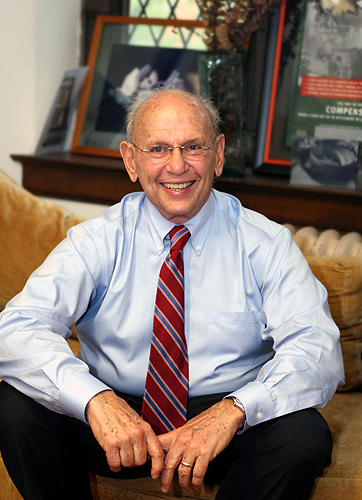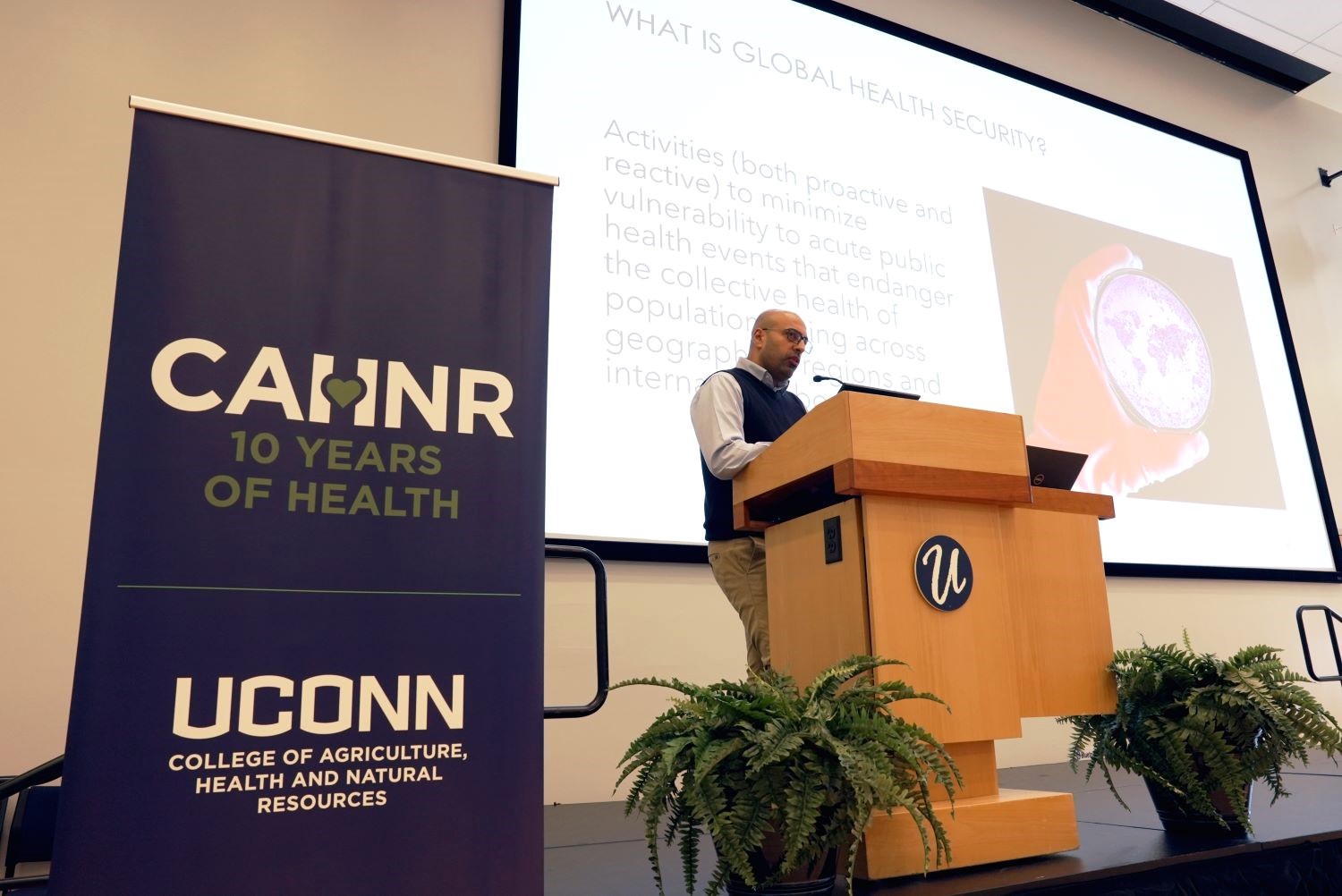
The extermination of millions of innocent civilians – not to mention slave labor, looting, medical experimentation, sterilization, and other war crimes – marked the gruesome reign of Nazi Germany during World War II. But in his latest book, Leonard Orland, Oliver Ellsworth Research Professor of Law, also calls attention to another, “little-known” culprit involved in the Holocaust: Switzerland.
In his book A Final Accounting: Holocaust Survivors and Swiss Banks (Carolina Academic Press, 2010), Orland explores the role of Switzerland’s government and banking industry in helping to finance the Nazis as they came to power and, for decades following the war’s end, denying Holocaust survivors access to funds they had placed in Swiss bank accounts.
“There have been dozens – probably hundreds – of books written about the Holocaust, but material in English on the role of Switzerland is almost non-existent,” says Orland, who took notice when a historic settlement of $1.2 billion resulted in 2000, after four class action lawsuits were filed by Holocaust survivors against Swiss banks.
The U.S. federal judge who oversaw the case captured Orland’s interest in launching a worldwide campaign to locate Holocaust survivors and their heirs, and equitably allocate the settlement funds among them. For Orland, one of his main goals in writing A Final Accounting was “to memorialize and present to a wider audience this Herculean and Solomonic undertaking.”
The Myth of Neutrality
Orland spent three years sifting through the entire court record – tens of thousands of pages, including transcripts of interviews with Holocaust survivors – to understand how Swiss law was misused to permit and justify unlawful actions committed by Swiss banks. His research also drew from the Bergier report, a 22-volume record generated following an independent investigation into the assets that were moved to Switzerland during the World War II era.
“Through this litigation, I got access to a lot of historical material telling the story of a Switzerland which did things besides make chocolate bars and cuckoo clocks,” Orland says. “It made munitions; it financed the construction of Auschwitz; it took from the Nazi banks looted Holocaust gold, including gold fillings from people who were murdered; and facilitated, financially, Nazi Germany.”
According to Orland, the offenses committed by Swiss financial institutions were numerous. They allowed Nazis to coerce Jews in their custody to sign their accounts over to the regime’s control, systematically destroyed records of Holocaust survivors’ accounts, and denied funds to survivors and their families for years following the war under a “veil of Swiss banking secrecy.”
“Moreover, they instituted a policy of charges to bank accounts – that is, each year, they would charge multiple fees, eventually depleting the smaller accounts to zero,” Orland says. Swiss law also permitted the banks to destroy all records of accounts dormant after 10 years, and then effectively seize the funds. “The banks had to know that these dormant accounts were the result of a unique historical event – genocide,” he says.
Yet neither the Swiss government nor its banks have since admitted to any wrongdoing, according to A Final Accounting. “One thing is clear – there’s been no outpouring of contrition at any level of the Swiss banking industry or government,” Orland says.
The Role of American Courts
In addition to examining this litigation and the court’s daunting task of distributing the settlement funds, A Final Accounting also discusses other famous class action lawsuits filed in American federal courts “to rectify historic wrongs” – in cases ranging from the victims of South African apartheid to descendants of American slavery.
As Orland points out, the U.S. offers something unique to victims of the Holocaust and other human rights offenses. “In America, and no place else in the Western world, is there such a thing as class action – let alone a human rights class action,” he says. “American courts, for more than a century, have entertained the possibility of a legal action for violating the law of nations.”
With 11 other books published during his career, Orland says he is most proud of A Final Accounting, a work that has provided him with a chance “to give Holocaust victims a way of having their words reach a wider audience.”
The law school is having a banner year for books, with the publication of 10 new faculty works – including Orland’s book – by major academic presses. In honor of these and other faculty publications in respected law journals, the school has dubbed the 2010-2011 academic year ‘The Year of the Book.’


